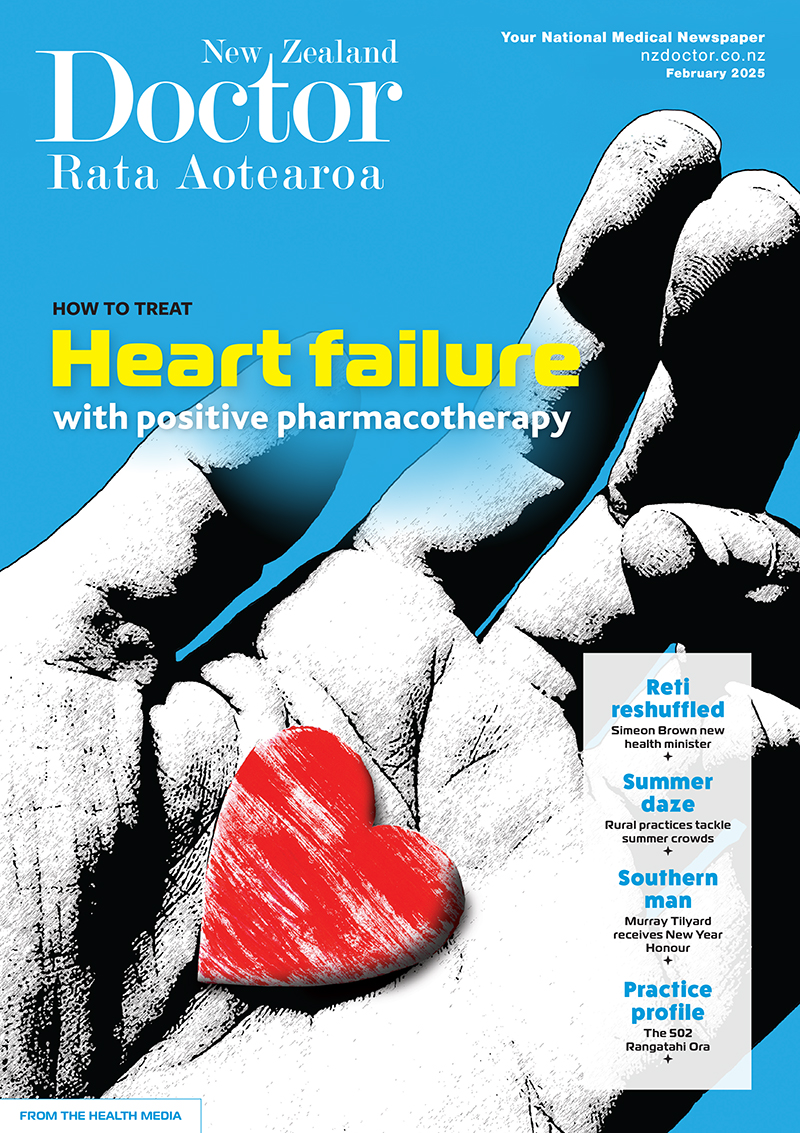Pharmacist prescribers Linda Bryant and Leanne Te Karu discuss positive polypharmacy for heart failure. Current evidence shows the intensive implementation of four medications offers the greatest benefit to most patients with heart failure, with significant reductions in cardiovascular mortality, heart failure hospitalisations and all-cause mortality
More investment in public health needed
More investment in public health needed
New Zealand public health doctors are calling for increased and sustained investment in effective public health.
Not only will such funding improve the health and wellbeing of the New Zealand population, but it will also support the country’s economic growth, says the New Zealand College of Public Health Medicine.
Spending on Vote: Health in New Zealand is substantial, and the College says that cost demands are likely to increase substantially in the coming years, due to a number of long-term challenges such as the growing burden of chronic severe health conditions, climate change-related health issues, antimicrobial resistance, inequity of health outcomes, and the need for strong primary health care.
The College points out that preventable disease and injury currently make up about 30% of all health losses (measured as disability-adjusted life years) in the country. Māori in particular experience excessive preventable health losses.
Evidence shows that public health interventions, which focus on prevention rather than cure, are cost-effective and the College says that this spending should be viewed as an investment, and not as a budgetary cost. The College says that this is an important principle, which should underlie current planning for the Review of the New Zealand Health and Disability System.
“An investment approach to public health takes the long view,” says the College president, Dr Felicity Dumble. “This should be taken into account in the System Review. Investment in public health protects people from disease, promotes health and wellbeing, and prevents people from getting sick. This in turn is associated with increased labour supply and productivity, which contribute to the country’s economic growth.”
“However, many of the factors influencing health, what we call the ‘social determinants of health’, lie outside the health sector. So, a partnership approach across government sectors is required,”
says Dr Dumble. “In addition, future health and longevity should be explicitly and fully valued in any modelling required for example by the Treasury, as a failure to do so devalues any gains made.”
The College has just released its Public Health as an Investment Policy Statement, available on the College’s website.
Dr Dumble says the College is also calling for health impact assessments across government policies; public health representation at all levels of government; full valuation of long-term outcomes that is
consistent across government sectors; and stops to any commercial conflicts of interest in health policy.
“Political commitment and leadership, strong governance, and an intersectoral, whole-ofgovernment approach is what is needed, along with increased investment in public health.”



